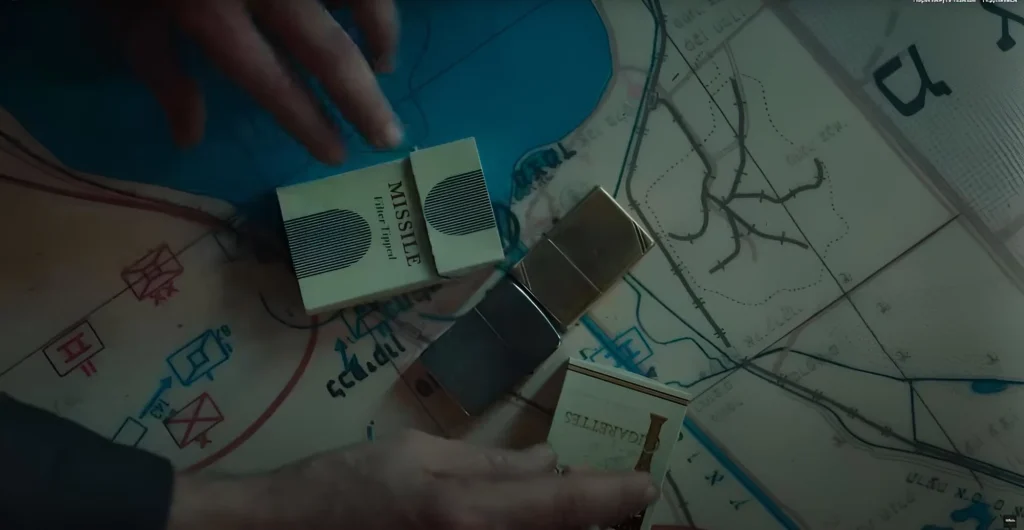On January 25, the historical biographical drama “Golda” began its screening in theaters, depicting the fourth Prime Minister of Israel, Golda Meir, during the tumultuous days of the Yom Kippur War. The film arrives on our screens with a significant delay, so in the review below, we’ll explain why this movie is worth attention if you haven’t had the chance to see it yet.
“Golda”
Genre: Historical Biographical Drama
Director: Guy Nattiv
Starring: Helen Mirren, Camille Cottin, Liev Schreiber, Lior Ashkenazi, Ed Stoppard
Theatrical Release: 2023
IMDb: 6.0
October 1973. Israel is attacked from two directions: Egyptian forces launch an offensive in the Sinai Peninsula, and Syrian forces invade from the Golan Heights. Israeli Prime Minister Golda Meir and the military-political leadership realize that ignoring potential threats contributed to the country’s unpreparedness to repel the attacks.
While Israel’s defense forces try to contain the enemy’s advance, suffering heavy losses, in the smoke-filled rooms of Golda’s cabinet, leaders strategize to find optimal solutions to turn the situation in their favor. It was a time of anxious thoughts and extremely difficult, responsible decisions that would determine the fate of many lives.
Apart from military concerns, Israel’s “Iron Lady” also had to consider the political context, as her decisions influenced the involvement of the United States and the Soviet Union in the conflict.
This is not the first attempt by filmmakers to portray the life of Golda Meir. In 1982, a TV film titled “A Woman Called Golda” was released, starring Ingrid Bergman in her final role. Although it earned the actress Emmy and Golden Globe awards, today few remember that project.

The new film about the only woman to hold the position of Prime Minister of Israel was directed by Israeli filmmaker Guy Nattiv, who won an Oscar for his short film “Skin” (2018), and the screenplay was written by Nicholas Martin, known for his work on the biopic “Florence Foster Jenkins” starring Meryl Streep. In this biographical film, the lead role is played by another prominent actress, Helen Mirren, known for portraying historical figures with authority.
The charm of this somewhat monotonous film largely lies in Helen Mirren’s meticulous performance under intricate makeup.
From the opening scenes, even before the first line is spoken, the expressive cinematic techniques provide a glimpse into the character. The local narrative focuses on her rather than military actions or action scenes. In a way, it is reminiscent of “Oppenheimer,” where the emphasis was also on the character rather than historical events—the creation of the deadly bomb.
Cinematographer Jasper Wolf (“Monos”) captures close-ups of the main character, particularly her deeply wrinkled face and infinitely sad and tired eyes. Later, the camera takes a lower angle as Golda heads to the Agron Commission hearing (another reference to Nolan’s monumental biopic and its cabinet scenes). This angle signifies the heroine’s confidence or at least steadfastness, despite the catastrophic state of her health. Yes, she is a strong-willed woman with a challenging destiny, and this becomes evident immediately.
The viewer’s interest is sustained through the tense atmosphere, a constant state of suspense imposed by the extremely challenging situation faced by the characters. Their doubts, pain, or even fears are relatable today. Their determination is understandable to us. While the film features an air raid signal, outside the window, the real thing echoes: the cursed MiGs take flight again.
In a situation where the dirt of real war and numerous deaths are kept off-screen, it makes sense to say that “Golda” is, to some extent, still a military drama, albeit confined within the framework of a political thriller. The plot offers discussions with toy tanks neatly arranged on maps and intriguing conversations with U.S. Secretary of State Kissinger. Plus, brief breaks for a smoke. All the while, everyone involved, like the audience, can hear the last cries of doomed soldiers.
The audience does not witness the horror on the battlefield, as seen in adaptations of Remarque or blockbusters by Ridley Scott and Steven Spielberg. Yet, they can imagine it, which is unlikely to leave anyone indifferent.
Considering the monotony of the narrative and the seemingly minimal eventfulness at first glance, one might falsely assume that “Golda” holds no interest. This would be the case if one expects solely a military action, which, frankly, is abundant in real life.
Nattiv’s film takes a different approach—charged with tension, the drama of circumstances, and the readiness of one woman, born in Kyiv, to bear enormous responsibility in a moment of crisis. With Helen Mirren’s excellent performance, this is sufficient to empathize with the fate of her outwardly weak but internally strong character. For a biopic, this is a crucial factor.
Conclusion:
“Golda” may not reach the level of the most outstanding biographical dramas like “Oppenheimer,” but it certainly deserves attention from the audience due to its charged atmosphere, the dramatization of circumstances, and the portrayal of a woman, by the way, born in Kyiv, taking on immense responsibility in a moment of crisis. With Helen Mirren’s exceptional performance, this is enough to be captivated by the fate of her seemingly fragile yet internally strong character. For a biopic, this is a fundamentally important factor.